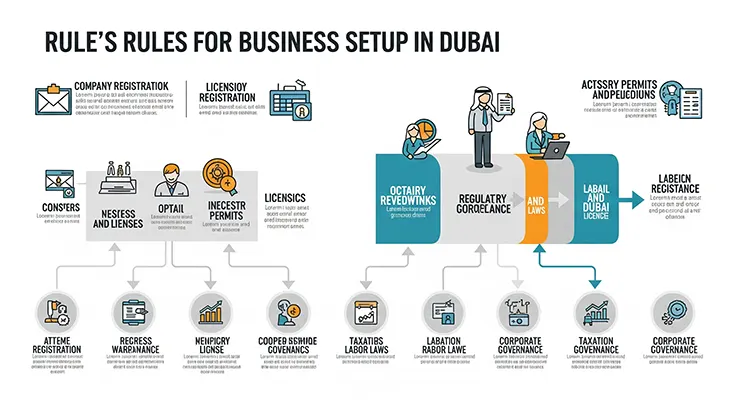What are the rules for business setup in Dubai?
Key Takeaways:
- Choosing the right jurisdiction (mainland or free zone) and legal structure is the foundational rule for any Business setup in Dubai.
- 100% foreign ownership is now permitted for most mainland activities, eliminating the previous local partner requirement.
- All businesses must obtain a trade license from the Department of Economy and Tourism (DET) or a relevant Free Zone authority.
- Physical office space is generally mandatory, though flexible options exist in free zones.
- Businesses must comply with Corporate Tax (9% on profits over AED 375,000, 0% for qualifying free zone entities) and VAT (5%) regulations.
- Adherence to UAE Labor Law is essential for all employers, covering contracts, wages, working hours, and benefits.
Dubai has established itself as a leading global business hub, attracting entrepreneurs and investors from around the world. Its rapid growth and business-friendly policies are underpinned by a robust and evolving regulatory framework. Understanding “What are the rules for Business setup in Dubai?” is crucial for any aspiring business owner, as compliance with these regulations ensures a smooth, legal, and sustainable operation. These rules govern everything from initial registration to ongoing financial, operational, and employment obligations.
Rules for Jurisdiction and Legal Structure for Business setup in Dubai
The fundamental rules for a Business setup in Dubai begin with choosing where you will operate and what legal form your business will take. This decision has far-reaching implications for your operational scope, ownership, and regulatory obligations.
- Jurisdiction Choice (Mainland vs. Free Zone):
- Mainland: Companies licensed by the Department











